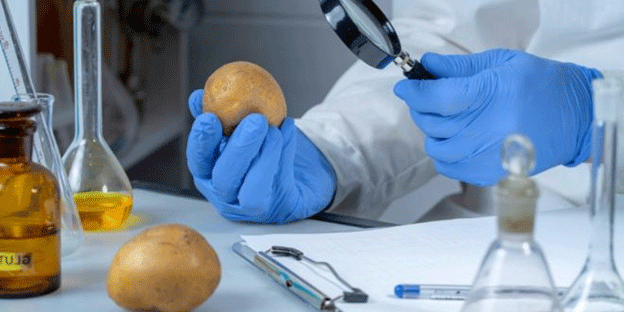Potato farming has long puzzled scientists and farmers alike. Why do genetically identical seed potatoes yield plants with vastly different sizes, productivity levels, and resilience? Researchers at Utrecht University, in collaboration with TU Delft and plant breeders, may have found the answer: microbes.
Biologist Roeland Berendsen and his team published groundbreaking research in Nature Microbiology, showing that bacteria and fungi on seed potatoes significantly influence growth. Some microbes, like a Streptomyces species, promote robust growth, while others hinder it.
To harness this insight, the team developed an AI model that predicts the growth potential of seed potatoes. The system combines genetic data from microbes with drone footage of potato plants at various stages of growth. “By merging these data points, the AI reveals which microbes are key to healthy growth,” explained Yang Song, the first author of the study.
The team gathered thousands of seed potato samples from 240 test fields. Using drones, they tracked plant growth over the season and fed this data into the AI. The results? An unprecedented ability to predict plant performance based on microbial composition.
Berendsen highlighted the transformative potential: “This is the start of a new era in agriculture, where microbiology and AI come together. We’re not just improving yields—we’re making farming more sustainable by reducing waste and reliance on chemical pesticides.”
Future applications could include microbial coatings for seeds or engineering plants to attract beneficial microbes, further enhancing crop health and productivity.
The integration of AI and microbiology in potato farming offers a promising path toward higher yields, reduced waste, and sustainable agricultural practices. By understanding and leveraging microbial interactions, farmers could optimize crop performance and tackle some of the most pressing challenges in modern agriculture.







